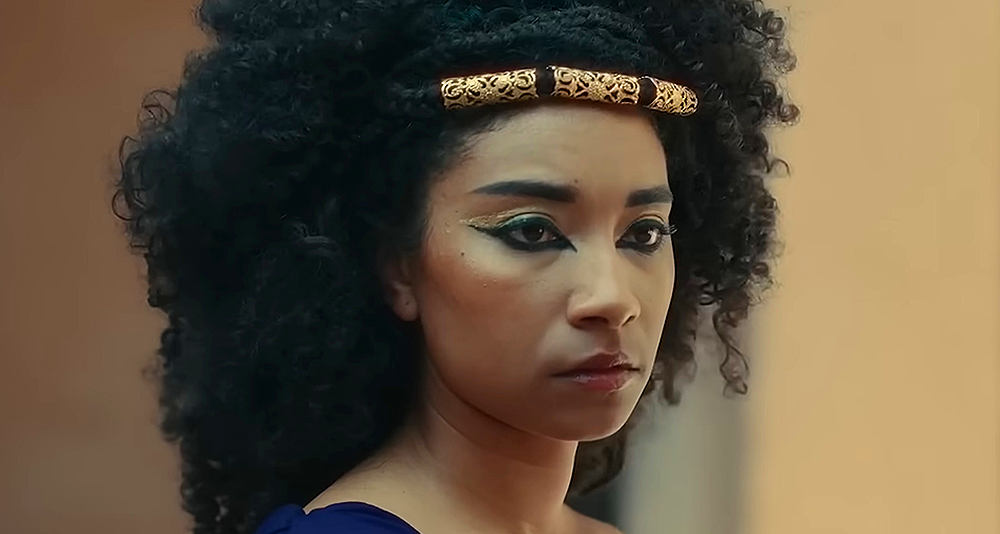“I remember my grandmother telling me: don’t believe what they told you in school, Cleopatra was black”
– A historical “expert” telling you to ignore actual history.
Over the past several years, Netflix has released a series of “Dramamentaries” – low-budget documentaries with actors playing certain moments while experts provide insight. This was not a new format as similar projects had produced similar projects in the past, some of them featuring vaguely familiar actors.
One of their latest projects, however, has a lot of eyes rolling with regard to how it’s treating its historical figures. Produced by Jada Pinkett Smith, this controversial title is actually the second season of her anthology series, African Queens. This time, it’s a “reimagined telling” of one of Egypt’s most famous monarchs. However, they appear to have confused reimagining fantasy with changing history.
In April 2023, Netflix released a trailer that has been the subject of ridicule both online and actual scholars. Needless to say, simply race-wapping is already falling thin Ice, but this documentary literally found the bottom when one of the “experts” interviewed saying right to the audience, “I remember my grandmother telling me don’t believe what they told you in school, Cleopatra was black”.
The controversy is so bad that Netflix itself has been sued by Egypt for erasing Egyptian culture.
Related Article: Diversity vs Tokenism in Historical Dramas
– Crude Mirror
Then What Race Was Cleopatra?
Genetically and historically, the people of the Mediterranean coast tend to be in a class of their own. While it may not be accurate to portray Cleopatra as entirely “white” (she was Greek from a time long before the Caucasians pushed through Europe) but she certainly wasn’t sub-saharan African, which is what we typically refer to today as “black”.
While the times and demographics have certainly changed around through most of history, people across North Africa, Egypt, and Lybia didn’t have this super dark complexion.
It is important to stress that the Cleopatra’s lineage, known as the Ptolemy Dynasty, were far from native Egyptian. The Ptolomies were actually Greek – more specifically, Macedonian.
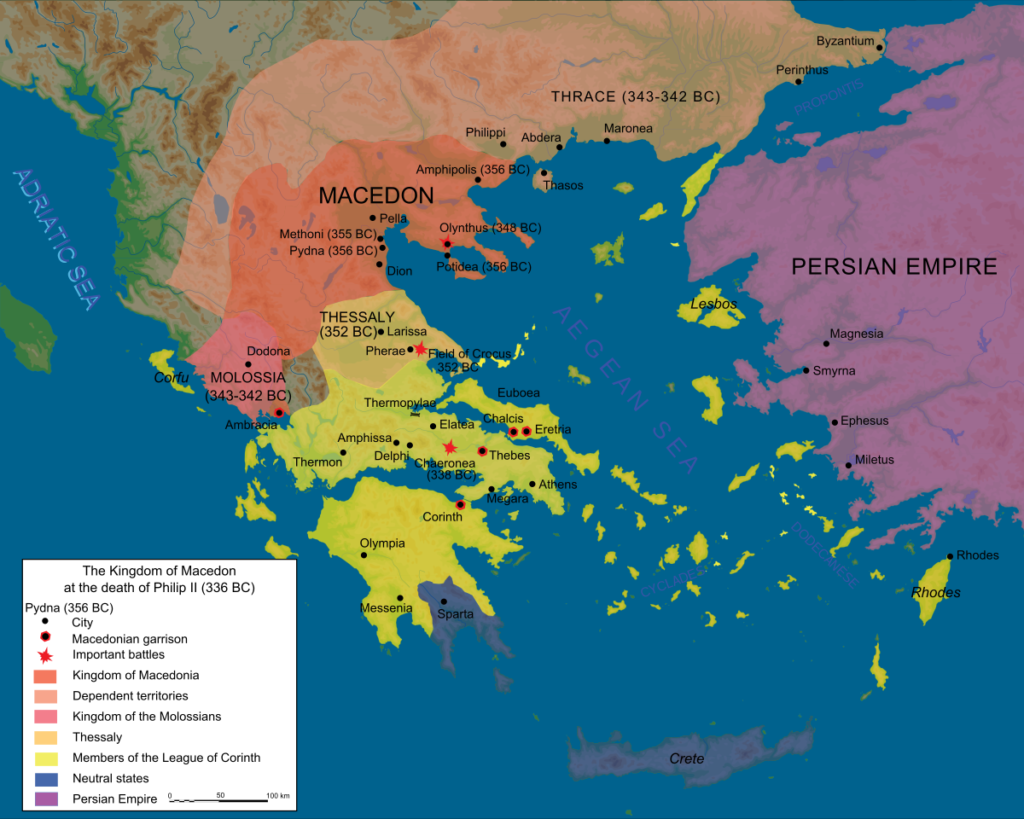
They were named after the descendants of one of Alexander the Great’s loyal generals – Ptolomy Soler. When Alexander died, Ptolemy assumed the governorship of Egypt and later took the title of “Pharaoh” for himself.
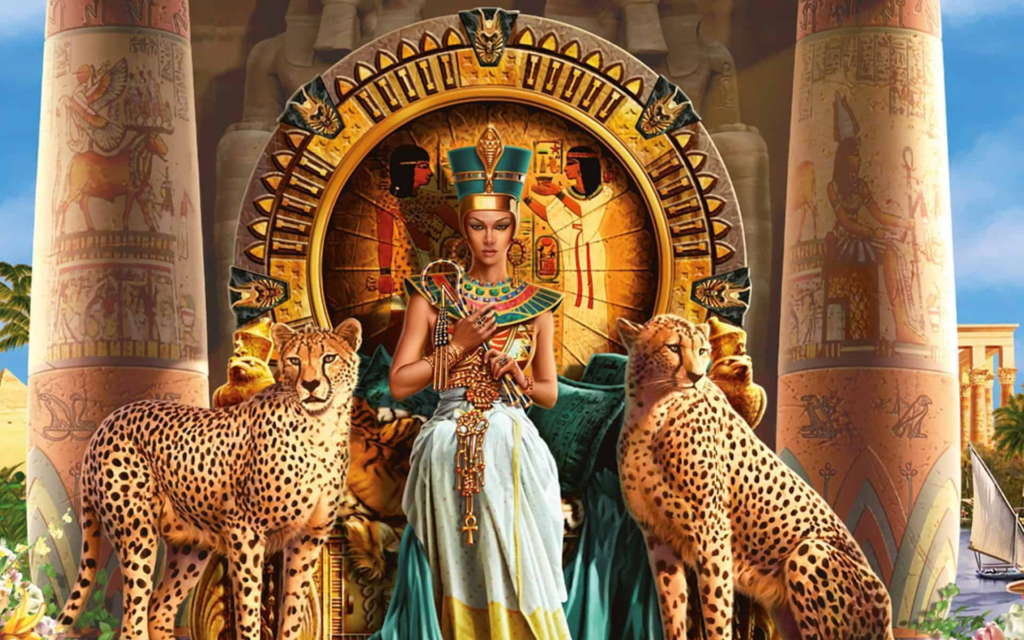
For the next 300 years, Ptolemy ruled Egypt unchallenged. They also developed a working relationship with the Roman Republic as Egyptian grain provided the Grain for much of the ancient world.
On top of that, the Ptolomies promoted a cultural fusion of Greek and Egyptian beliefs, merging Zeus and Amun-Ra as the same figure. They were also firm advocates of philosophy and science that preserved much of the knowledge of the and preserved all this knowledge in their great library.
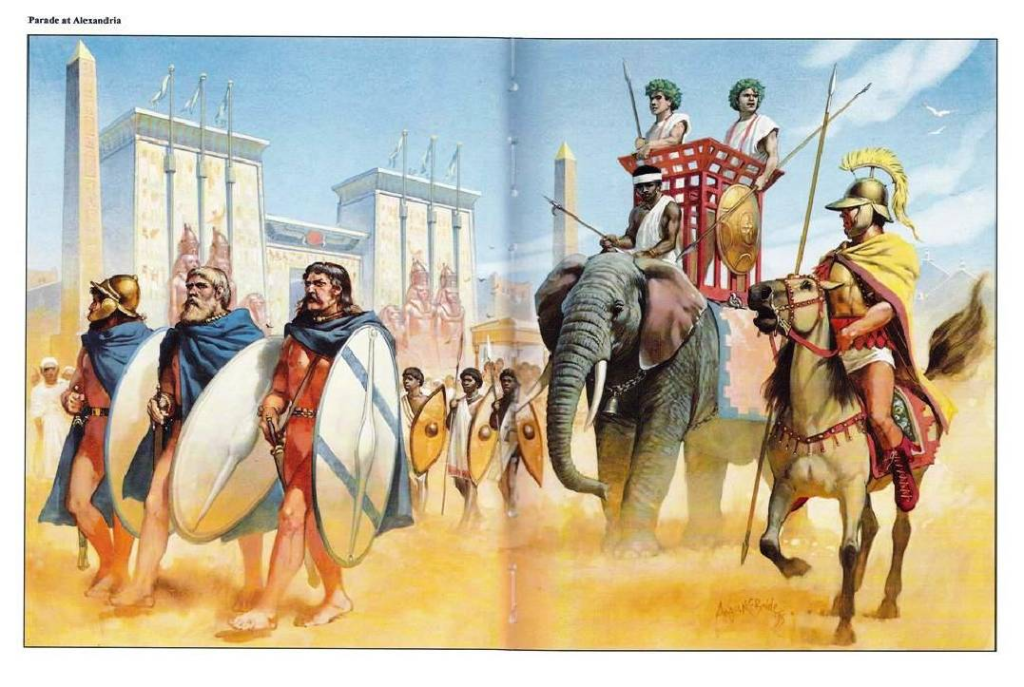
And it’s these cultural values, knowledge, and history that Jada Plinkett-Smith and director Tina Gharavi come to throw dirt all over happily. It is an undeniable fact that Cleopatra was Greek and thus lighter-skinned, as her family’s ruling aristocracy was predominantly Greek.
You can’t even argue that the Ptolomies intermingled with the Egyptian populations and “darkened up” over time – because the Ptolomys famously practiced incest during much of their rule. Even if they did marry someone outside their bloodline, they would have married someone of noble Greek or even Persian stock. They would have been nowhere near the super-dark complections Netflix/Plinkett-Smith wants you to think.
You know what? Let actual Egyptians argue why this is so wrong.
Final Thoughts
At least in my other article, those mentioned were “movies” that have the Excuse of Artistic Liberty. This doesn’t even have that excuse because it labels itself as a documentary, meaning it should educate its audience about the past. Changing historical Egypt Is no different than changing the American history of slavery.
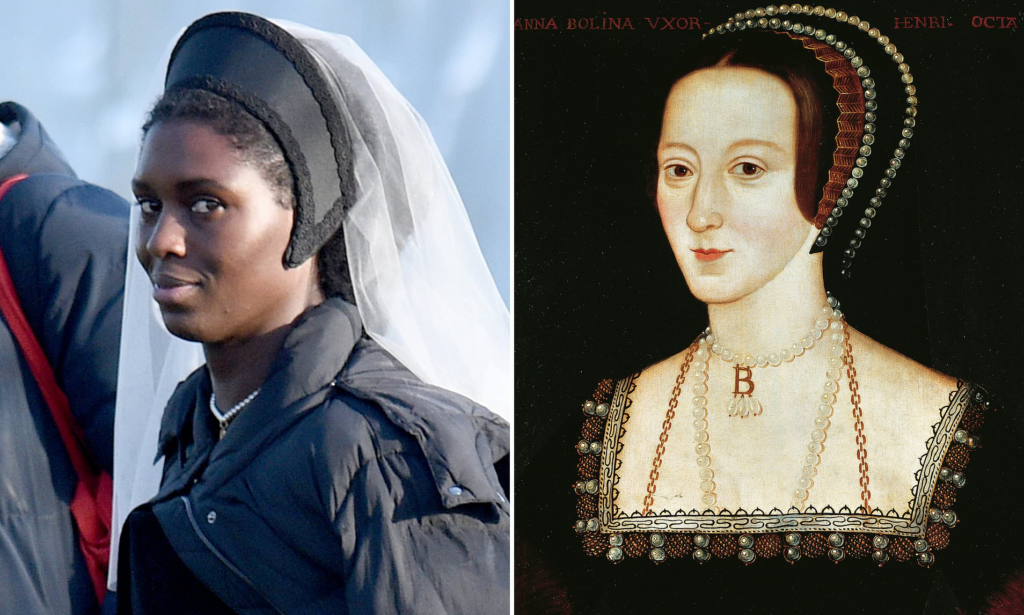
The actual crime of shows like these is how often more qualified actors are rejected for what amounts to fake progress. Can someone please hire Greek or Egyptian actors to play these roles? I know it’s hard to find someone bankable, but they exist. At least Gal Gadot comes from the Mediterranean, and they are at least closer.

It is time to stop stealing another culture to push another half-assed modern agenda. Let Egyptian actors and filmmakers tell their stories. You know you’ve messed up when Egypt starts suing.
The fact is that history does not care about people’s objective feelings about the past; you can’t change that. The purpose of Netflix’s “documentary” was not to educate viewers. It was to rewrite history to boost someone’s personal agenda.
Such political stunts set back progress decades. It’s ironic wealthy progressives want to criticize brands for “cultural appropriation” when they themselves are appropriating. If there is no serious effort to address how wrong this is, we might as well have John Wayne potraying Genghis Khan all over again.

I get it; you want to address grievances about Hollywood’s treatment of minorities In the past and how so many roles are either given away to white actors or stereotyped. This could have worked if there was a distinctive style. There are good reimaginings like Hamilton that do just that. They all have a clear artistic vision which gives the diverse casting a purpose and thus makes sense.

There is no artistic vision in Netflix’s Cleopatra, at least not a clear one. It’s trying to portray itself like any other historical movie completely straight.
Other African cultures have rich histories and cultures that don’t get nearly enough attention – and they will continue to be ignored if “virtuists” like JPS continue to think no one would care. That’s not a statement of how Americans See African history; it’s how little she values it. I will Take 100 Will Smith Slaps to speak out against what people like JPS are doing to actual history.

#Worth It
